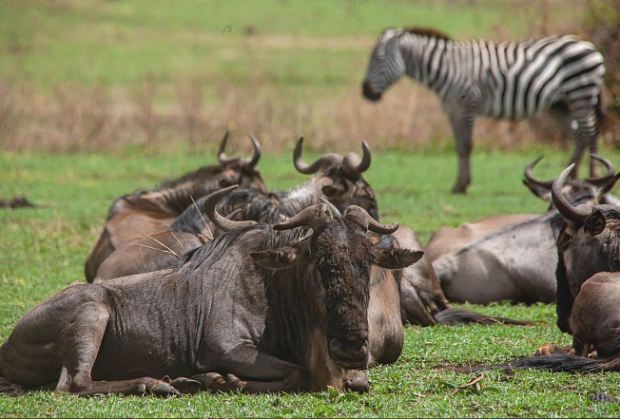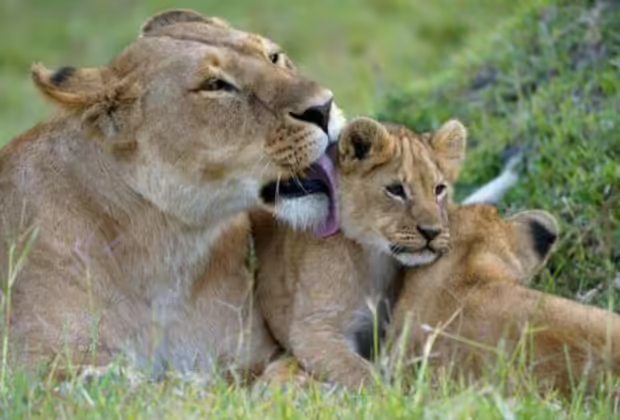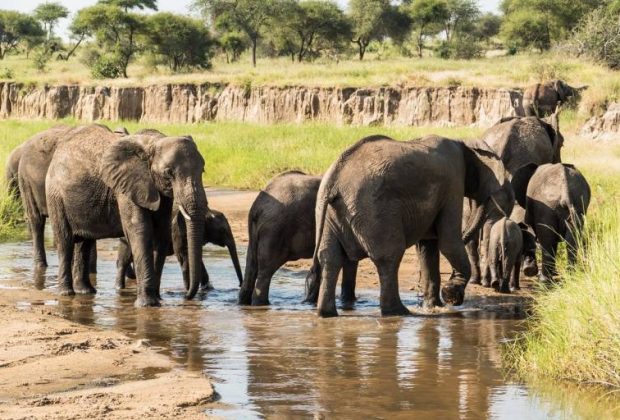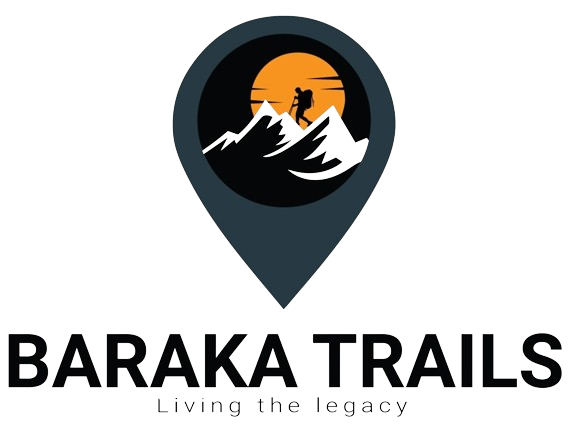4 DAYS TANZANIA SAFARI



4 DAYS TANZANIA SAFARI (TARANGIRE/ NGORONGORO/ SERENGETI)
Get a real taste of Tanzania on this short safari which will take you right out to the Eden of Ngorongoro Crater. You will also visit two of Tanzania’s most popular national parks: the Tarangire National Park, home to the largest population of elephants on the planet and Manyara national park.
You will be met by your private guide and vehicle and driven to Tarangire National Park, arriving with plenty of time for an afternoon game-drive. The Tarangire River runs through the park attracting a huge number of elephants, buffalo, giraffe and antelope, particularly in the dry season between June and October. It is not uncommon to see large herds of elephants roaming through Tarangire’s savannah grasses or taking shade under the odd looking “upside down trees” (baobab) that are dotted around the park. The park also boasts over 550 different bird species, the most diverse in Africa, including the Kori Bustard, the heaviest flying bird in the World!
Accommodation: Mid-range Tented Camp in the park
Meal Plan: Full Board
After breakfast, you will take a picnic lunch with you as you continue to the Serengeti, a drive of around 4 ½ hours through the Ngorongoro Conservation Area. Even when the migration is quiet, the Serengeti offers some of the most exciting game viewing – great herds of buffalo, smaller groups of elephant and giraffe, as well as thousands of eland, topi, hartebeest, impala and Grant’s gazelle.
Accommodation: Mid-range Tented Camp in the park
Meal Plan: Full Board
After breakfast, you will set out with a picnic lunch for further game viewing in the Serengeti. The Serengeti National Park is one of the world’s greatest game parks. Meaning “endless plains” in the Maasai language, it is Tanzania’s oldest game reserve and is world-famous for the role it plays in the annual Great Migration, when an estimated two million herbivores – mostly wildebeest and zebra – migrate from the Serengeti to Kenya’s Maasai Mara Game Reserve. In the afternoon you will leave the Serengeti to return to the Ngorongoro Conservation Area.
Accommodation: Mid-range Tented Camp in the park
Meal Plan: Full Board
Accommodation: Mid-range hotel in Arusha
Meal Plan: Bed and Breakfast
You will be travelling in one of our comfortable safari vehicles. Each 4×4 vehicle has a “pop top” roof to provide excellent views of the incredible wildlife.
The different National Parks – Tarangire, Serengeti and Ngorongoro. While this gives you the opportunity to see more of the Tanzania countryside, look out for Maasai villages beside the road, children tending their herds of goats and cattle, and road-side markets – you will not see any game during these transit times.
Included:
Accommodation:
- Two nights’ stay in lodges or tented camps.
- Full board (breakfast, lunch, and dinner).
Transport:
- Airport or hotel pick-up and drop-off.
- 4×4 safari vehicle with a pop-up roof.
- Experienced driver-guide.
Park Fees:
- Entry fees for national parks (e.g., Serengeti, Ngorongoro, Tarangire, Lake Manyara).
Meals and Water:
- All meals during the safari.
- Bottled water during game drives.
Safari Activities:
- Game drives.
- Wildlife viewing.
- Cultural visits (if included in the itinerary).
Excluded:
Flights:
- International airfare to and from Tanzania.
Visas:
- Visa fees for entering Tanzania.
Insurance:
- Travel and health insurance.
Optional Extras:
- Activities like hot air balloon rides, walking safaris, etc.
Personal Expenses:
- Souvenirs, laundry, phone calls.
Tips:
- Gratuities for guides, drivers, and lodge staff.
Beverages:
- Drinks other than bottled water (e.g., sodas, alcohol).
Medical Costs:
- Medical expenses and emergency evacuation costs.
FAQs
1. What is included in a typical Tanzania safari package?
Inclusions: Accommodation, meals (breakfast, lunch, and dinner), transportation in a 4×4 safari vehicle, experienced driver-guide, park entry fees, and bottled water during game drives.
Exclusions: International flights, visa fees, travel insurance, optional activities (e.g., hot air balloon rides), personal expenses (souvenirs, laundry), tips, and beverages other than bottled water.
2. What should I pack for a safari in Tanzania?
Clothing: Lightweight, neutral-colored clothing, comfortable walking shoes, a hat, sunglasses, and a warm jacket for early morning and evening game drives.
Other Essentials: Insect repellent, sunscreen, binoculars, camera, personal toiletries, any necessary medications, and a reusable water bottle.
3. When is the best time to go on a safari in Tanzania?
Best Time: June to October, which is the dry season and ideal for wildlife viewing.
Considerations: The wildebeest migration in Serengeti, typically from June to July (Grumeti River crossing) and July to September (Mara River crossing).
4. What types of accommodation are available on a safari?
Options: Lodges, tented camps, and hotels. Options range from budget to luxury.
Facilities: Generally include en-suite bathrooms, dining areas, and sometimes amenities like swimming pools and Wi-Fi.
5. How safe is a safari in Tanzania?
Safety: Safaris are generally safe, especially with reputable operators. Always follow your guide’s instructions and remain inside the vehicle during game drives.
Health Precautions: Ensure vaccinations are up to date and take malaria prophylaxis if recommended.
6. Do I need a visa to travel to Tanzania?
Visa Requirements: Yes, most travelers need a visa. You can obtain it online prior to travel or on arrival.
Tip: Check the latest requirements and apply in advance to avoid delays.
7. What kind of wildlife can I expect to see?
Wildlife: The Big Five (lion, leopard, rhino, elephant, buffalo), giraffes, zebras, wildebeest, hippos, cheetahs, and a variety of birds.
Highlights: The Serengeti is famous for the Great Migration, and Ngorongoro Crater offers dense wildlife viewing.
8. How much should I tip on a safari?
Guidelines: Around $10-20 per day for your driver-guide and $5-10 per day for lodge staff. However, tipping is at your discretion.
9. What is the typical daily schedule on safari?
Morning: Early game drive at dawn.
Midday: Return to the lodge for lunch and relaxation.
Afternoon: Another game drive or activity.
Evening: Dinner and leisure time at the lodge.
10. What are the weather conditions like in Tanzania?
Dry Season (June-October): Warm days and cool nights; layers are recommended.
Wet Season (November-May): Warm and humid with occasional rain; bring a light rain jacket.
11. Is Wi-Fi available during the safari?
Availability: Many lodges and camps provide Wi-Fi, but connections may be slow and intermittent. Some remote areas may have limited or no Wi-Fi.
12. Can dietary requirements be accommodated?
Dietary Needs: Yes, most lodges and camps can accommodate special dietary requirements if informed in advance.
13. How can I ensure my safari is eco-friendly?
Eco-friendly Practices: Choose operators committed to sustainable tourism, follow park rules, minimize plastic use, and respect wildlife and local communities.
14. What health precautions should I take?
Health Advice: Consult a travel doctor for vaccinations and malaria prophylaxis. Bring a basic first aid kit and any personal medications.
15. Are children allowed on safaris?
Family Safaris: Many operators offer family-friendly safaris, but age restrictions may apply for certain activities. Check with your tour provider.
Per Person $2,720
GROUP $1,920
